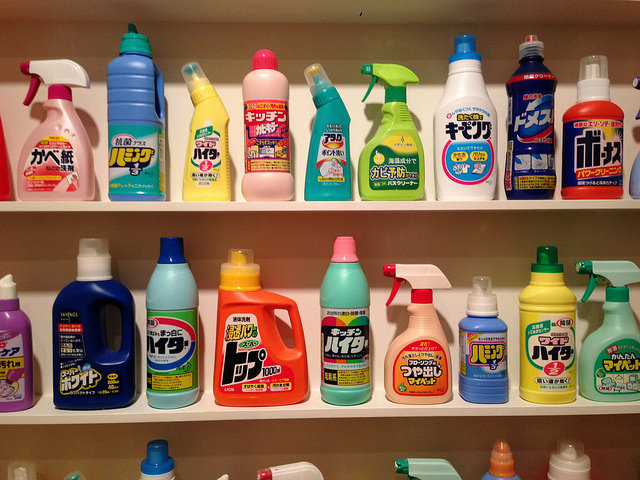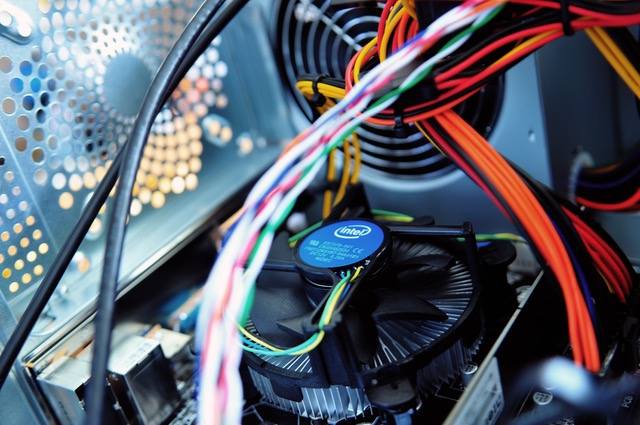Our home should be a safe haven for ourselves and our family to grow up in comfortable and healthily. Unfortunately, many homes are filled with hidden dangers – some mild and innocuous, but some far more grave. Without realizing it, we accidentally open ourselves up to intruders, illness, and injury by just doing things the way they’ve always been done.
The problem is that “it’s always been done that way” isn’t a whole lot of use when you’ve got an electrical fire or a carbon monoxide leak. Proactive home care is the only way to guarantee problems do not arise, and that everyone who lives in your house is safe, all of the time. Do you swim in an unclean pool, leave windows unlocked, and use old, unsafe electrical appliances? You could be compromising your own safety without even realizing.
Could you be a target for burglars?
Burglars tend to be opportunistic. They will choose a house which is currently unoccupied, not overlooked, and with a point of easy access. You might think that every door is locked and window closed, so you’re not a target, but unfortunately it requires more than that. Burglars know their locks, so they know which ones are easiest to force – investing in modern and good quality locks will deter them from entering the home this way. They also know how old-fashioned alarm systems work, so firstly, make sure you have an up-to-date system for maximum security, but also ensure that the panel is not visible through any door or window. This will mean that the burglar doesn’t get the opportunity to scope out the security before they enter, making it a far higher risk.
Keeping your garden clear from places to hide makes it more difficult to scope out your property as they wait for you to leave, and a motion-sensor security light is the best way to give them a fright and deter them from your property. Don’t invite them in, make your home seem like a risk to them.
Where could germs be hiding?
However much you vacuum, wipe down bathroom and kitchen surfaces, and wash your hands, there will always be bacteria and bugs lurking. How often do you wipe out your refrigerator, clean the mildew from your faucets and refrigerator, and even clean the water from your swimming pool, if you’re lucky enough to have one? It’s easy just to assume that water is clean, but it can harbor all sorts of bacteria and other debris.
Chlorine and other pool cleaners are one way to kill germs in the pool, but using too much (enough to smell) is bad for swimmers. Filtering the water, and replacing it regularly is crucial. Automatic pool cleaners will ensure that any dead leaves, insects, algae or more are removed before they start to decompose, becoming a great breeding ground for bacteria, so they’re a worthwhile investment. With so many to choose from, make sure you check out some robotic pool cleaners compared online before making your investment. They can make a huge difference to the clarity of the water, for relatively little effort, and can increase the safety of your pool significantly.
Are harsh chemicals used sparingly?
Sometimes we need to use harsh chemicals in our homes to ensure things are as clean as they should be, but used in high quantities can be tremendously unhealthy. These chemicals can cause problems with the respiratory system, worsening asthma and even causing problems such as bronchitis. Never use above the recommended dosage of any strong chemicals, and only do so in a well-ventilated space.
Do you have the right alarms?
An intruder alarm is crucial for keeping your family safe from other people, but what about other sorts of alarm systems? Everyone knows that they should have a smoke detector or fire alarm, but how modern are they, and how often do you check they’re still working safely? Having the alarm fitted is one thing, but letting the batteries run out or the device age unknowingly could be putting you and your family in serious danger.
One very important alarm that many homes do not have is a carbon monoxide alarm. Carbon monoxide is a colorless and odorless gas which is emitted from gas appliances which are not functioning properly. It fills the blood in the place of oxygen, meaning that people who inhale it over time will experience lightheadedness, nausea, and ultimately could die. These alarms detect carbon monoxide even before symptoms are apparent so that medical help can be sought and the problem dealt with. They’re inexpensive, and can literally save lives, so if you haven’t got one already, make it a priority.
Are your electrical appliances tested regularly?
Many home electrical fires are started by older generation appliances which do not have up to date surge protection or fuses, and are not tested for their safety. All electrical devices should be given a once-over every few weeks to ensure that the cables are not fraying and there is no buildup of dust or debris, but they should also be tested by professional electricians every few years to guarantee their safety. It isn’t expensive, but if it saves you and your family from a potential fire, it’s definitely worth any cost.
Do you have hidden pests?
Pests and vermin can cause all manner of problems in a home. They can bring in germs, cause fires, and even cause structural damage to your property. They could be in your home for months before you even notice them, as most pests tend to live in the floor, walls, and roof cavities, rather than right under your nose. It is usually possible to hear mice and rats scampering through the walls, or catch little presents that they might leave you. It’s slightly more difficult with termites. Keep an eye out for telltale signs of termites such as swelling in walls, small piles of sand, or wood seeming to buckle. You might even see a single termite making a break for it. Remember, they’re never alone. If there is one termite in your home, chances are you have a full colony. An exterminator will be the best way to remove the entire colony so the problem doesn’t recur.
Keeping your home safe for your family is essential – the trick is to be mindful, and always be aware of hidden dangers.







You shared good suggestions about deterring thefts and break-ins! All those tips can help homeowners improve the safety of their properties. But as for apartment communities, it may be a little bit more difficult to ensure safety there. However, we have some ideas: https://sentriforce.com/industries/apartment-communities/.